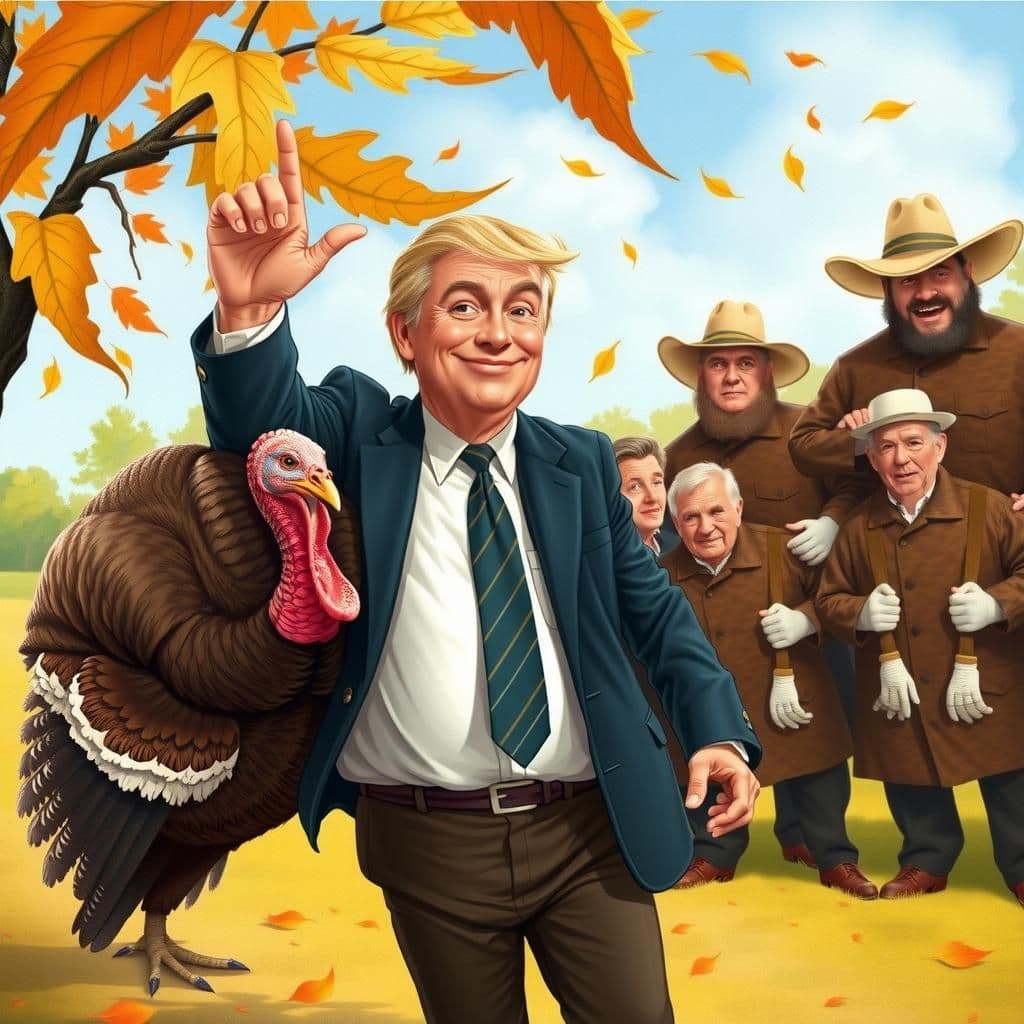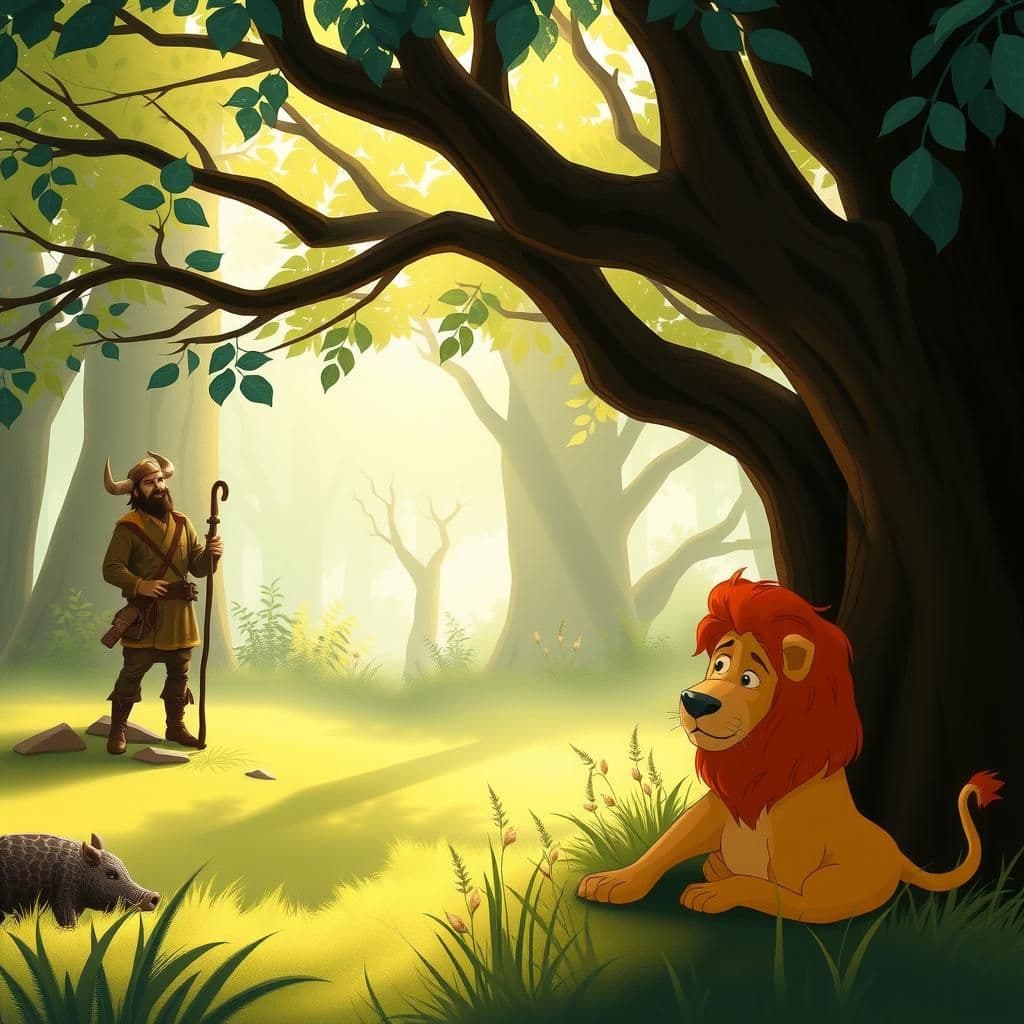The Seeker and the Sought

Story Summary
In "The Seeker and the Sought," a clever politician uses bait to catch a turkey for dinner, humorously claiming that the bird sought him instead. This fable highlights his manipulative tactics and serves as a meaningful story with moral implications, showcasing the irony in his presentation while embodying the essence of popular moral stories.
Click to reveal the moral of the story
The moral of the story is that deception can lead to unintended consequences, as those who seek to exploit others may find themselves ensnared instead.
Historical Context
This story draws on the tradition of fables, particularly those popularized by Aesop in ancient Greece, which often feature animals and convey moral lessons about human behavior and societal norms. The tale reflects a satirical commentary on political manipulation and the art of persuasion, echoing other literary works that critique the nature of politicians and their tactics, such as those found in the writings of Jonathan Swift or George Orwell. By anthropomorphizing the turkey and presenting the politician's cunning strategy, the story underscores themes of deception and the often exploitative relationship between leaders and their constituents.
Our Editors Opinion
This fable illustrates the dangers of being lured by superficial benefits without recognizing the hidden traps that come with them, a lesson that resonates in modern life where individuals often pursue instant gratification or seemingly advantageous opportunities without fully understanding the consequences. For instance, a recent scenario could involve a young professional accepting a seemingly perfect job offer with a high salary but later discovering that the role comes with excessive demands and a toxic work environment, ultimately leading to burnout and dissatisfaction.
You May Also Like

Revenge
An insurance agent attempts to persuade a tough man to take out a fire policy on his house, passionately detailing the dangers of fire. When questioned about his motives, the agent reveals a dark secret: he seeks revenge against the insurance company for betraying his sweetheart, turning the encounter into a tale reminiscent of folklore with a moral about the consequences of deceit and the lessons learned from personal vendettas.

The Bull the Lioness and the Wild Boar Hunter
In this impactful moral story, a bull accidentally kills a lioness's cub, prompting her to mourn deeply. A wild boar hunter, observing her sorrow, points out that many men also grieve for their lost children due to her predatory nature. This short moral tale serves as a reminder of the cycle of loss and the consequences of one's actions, making it a poignant lesson for class 7 students.

The Doe and the Lion
In "The Doe and the Lion," a doe fleeing hunters discovers a life-changing truth as she seeks refuge in a lion's cave, only to be attacked and killed by the very beast she thought would save her. This poignant tale serves as a cautionary reminder for young readers that in avoiding one danger, one must be wary of falling into a greater peril. Through folklore and moral stories like this, we learn valuable lessons for personal growth and the importance of careful decision-making in life.
Other names for this story
The Politician's Turkey Trap, Baited Ambitions, Dinner Deception, The Turkey Scheme, Hooked by Desire, The Pursuit of Dinner, A Politician's Feast, The Unwanted Pursuit
Did You Know?
This story satirizes the manipulative tactics often employed by politicians, illustrating how they can exploit natural desires and vulnerabilities to achieve their own ends, ultimately revealing the deceptive nature of such interactions in politics.
Subscribe to Daily Stories
Get a new moral story in your inbox every day.